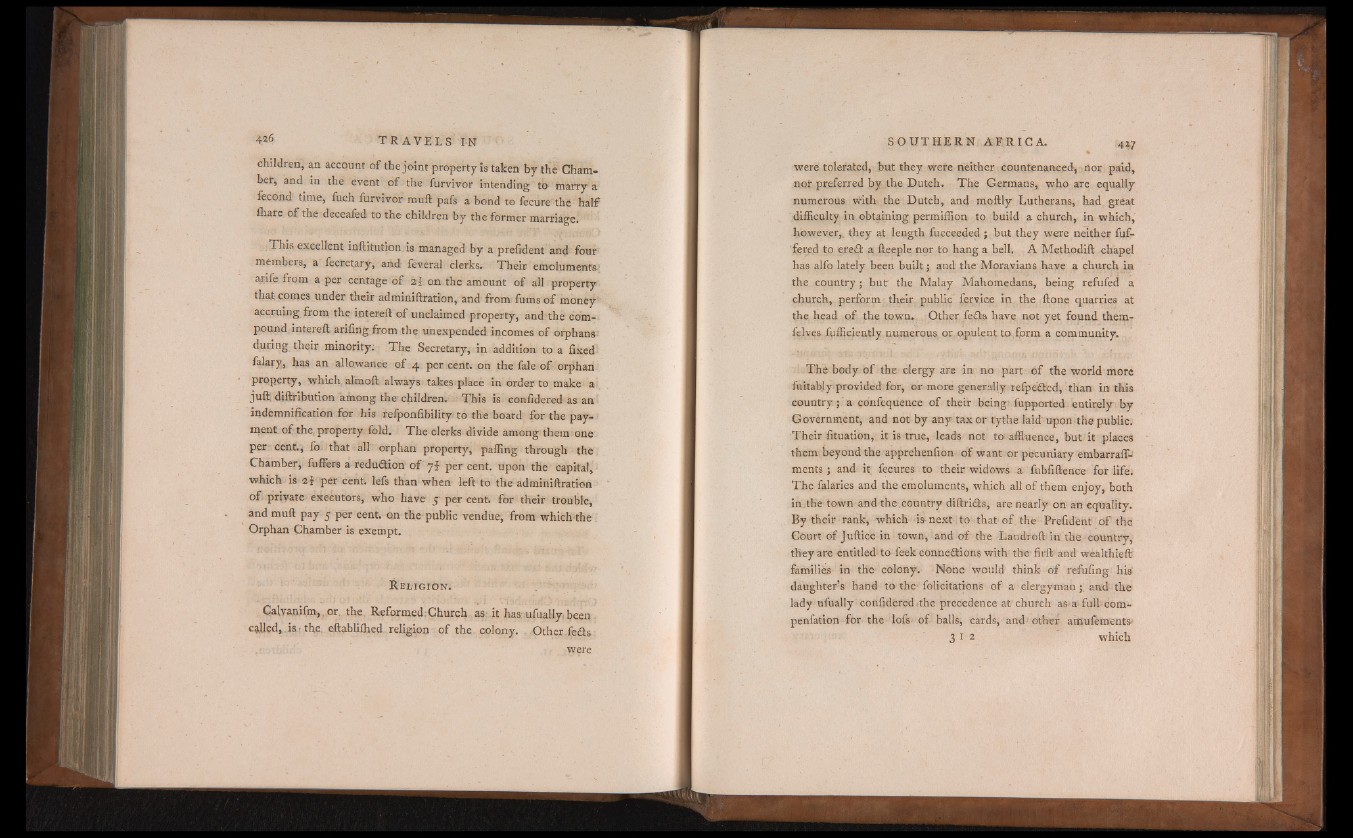
children, an account of the joint property is taken by the Chamber,
and in the event of the furvivor intending to marry a
fecond time, fuch furvivor mull pafs a bond to fecure the half
lhare of the deceafed to the children by the former marriage.
This excellent inftitution is managed by a prefident and four
members, a fecretary, and feveral clerks. Their emoluments
arife from a per centage of on the amount of all property
that comes under their adminiftration, and from fums o f money
accruing from the intereil of unclaimed property, and the compound
intereft arifing from the unexpended incomes of orphans
during their minority. The Secretary, in addition to a fixed
falary, has an allowance of 4 per cent, on the fide of orphan
property, which almoft always takes place in order to make a
juft diftribution among the children. This is confidered as an
indemnification for his refponfibility to the board for the payment
of the property fold. The clerks divide among them one
per cent., fo that all orphan property, palling through the
Chamber, fuffers a reduflion of 7! percent, upon the capital,
which is 2§ per cent, lefs than when left to the adminiftration
of private executors, who have 5 per cent, for their trouble,
and mull pay 5 per cent, qn the public vendue, from which the
Orphan Chamber is exempt.
R e l i g i o n .
Calvanifm,. or. the Reformed ,-Church as it has ufually. been
caUed, .i&. the eftablilhed. religion of the colony. Other feds
were tolerated, but they were neither countenanced, nor paid,
nor preferred by the Dutch. The Germans, who are equally
numerous with the Dutch, and moftly Lutherans, had great
difficulty in obtaining permiffion to build a church, in which,
however,, they at length fucceeded ; but they were neither fuf-
fered to eredt a fteeple nor to hang a bell. A Methodift chapel
has alfo lately been built; and the Moravians have a church in
the country; bur the Malay Mahomedans, being refufed a
church, perform their public fervice in the Hone quarries at
the head of the town. Other feds have not yet found them-
fclves fufficiently numerous, or opulent to fiorm a community.
The body of the clergy are in no part of the world more
fuitabjy provided for, or more generally lefpedtcd, than in this
country ; ' a confequence of their being fupported entirely by
Government, and not by any taxor tythe laid upon the public.
Their fituation, it is true, leads not to affluence, but it places
them beyond the apprehenfion of want or pecuniary embarraif-
ments ; and it fecures to their widows a fubfiftence for life.
The falaries and the emoluments, which all of them enjoy, both
in the town and the country diftrids, are nearly on an equality.
By their rank, which is next to that of the Prefident of the
Court of Juftice in town, and o f the Landroft in the; country,
they are entitled; to leek connections with the firft- and wealth left
families in the colony. None would think of refufing his
daughter’s hand to the felicitations of a clergy man ; and the
lady ufually confidered the precedence af church as a full com-
penfation for the lofs- of balls, cards, and other amufements-
3 1 2 which